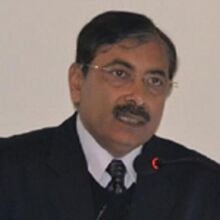
Manu Bhatnagar
Subject Expert
Manu Bhatnagar has done his Masters In Regional Planning from Cornell University, USA. He is currently Principal Director, Natural Heritage Division at INTACH. He has expertise in urban planning, urban biodiversity, environment planning, regional landscapes, drawing up lake conservation/ management plans, crafting urban water policy, unconventional wastewater treatment. He is given the role of team Leader for Smart Cities Project for Allahabad and Aligarh cities.
His work experience spans over countries like India, Thailand and the United States of America and has completed training assignments in Sri Lanka and Nepal. He is also a visiting faculty member and a thesis guide at School of Planning and Architecture, New Delhi.







